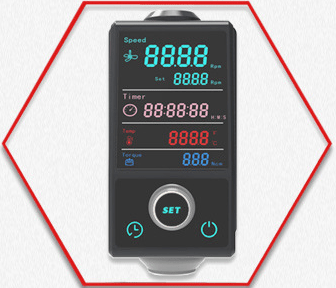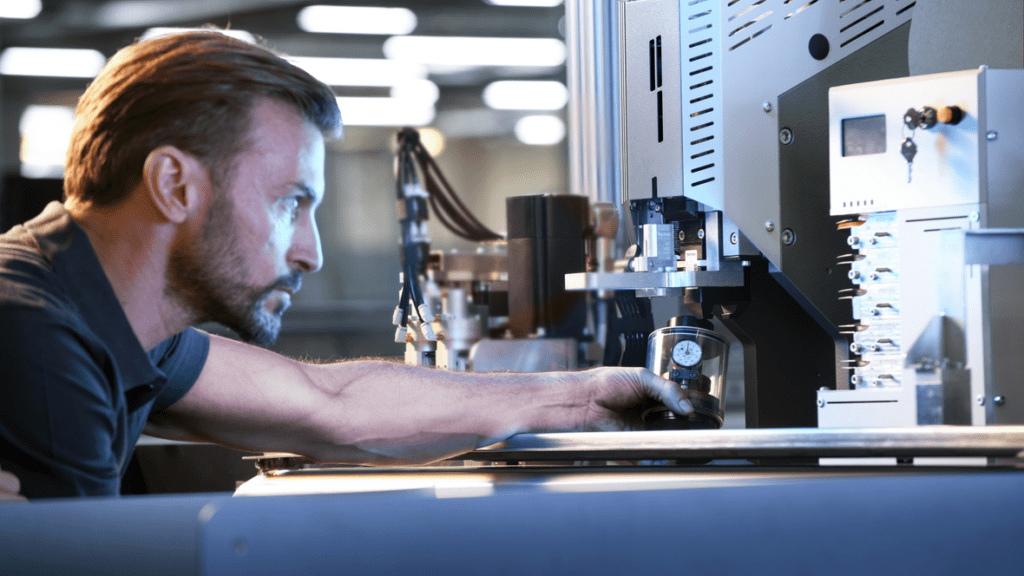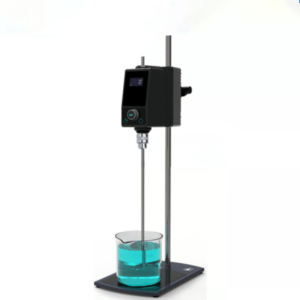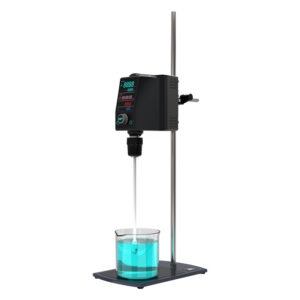In a laboratory, precision is everything. Whether you’re blending chemicals for a pharmaceutical project, preparing cosmetic formulations, or conducting chemical research, the accuracy of your equipment plays a crucial role in achieving reliable results. One piece of equipment that is often overlooked in terms of calibration is the overhead stirrer.
An overhead stirrer is designed to mix liquids at various speeds, ensuring uniform consistency throughout your samples. However, even the most advanced stirrers can become miscalibrated over time, affecting their performance. This is where regular Overhead Stirrer Calibration comes into play. In this article, we will explore the importance of stirrer calibration, how it affects the accuracy of your work, and the methods to ensure your stirrer operates at peak performance.


Why Calibration Matters for Your Overhead Stirrer
Calibration of your overhead stirrer is essential for several reasons:
- Accuracy of Stirring Speed: Over time, the motor and speed controller of your stirrer can lose their ability to maintain accurate rotational speeds. If the stirrer is not calibrated properly, you may experience inconsistent stirring speeds, which can lead to incomplete or uneven mixing.
- Consistency in Results: Many laboratory processes require exact consistency in stirring. Whether you’re mixing chemicals in precise ratios or blending ingredients for cosmetic formulations, proper calibration ensures that every batch is uniform and reproducible.
- Equipment Longevity: Calibration isn’t just about performance. Regularly calibrating your stirrer helps prevent unnecessary wear and tear on the motor and other components. It ensures that the stirrer runs smoothly, reducing the risk of breakdowns that can cause costly repairs or delays.
- Regulatory Compliance: In fields like pharmaceuticals and cosmetics, precise measurements and results are critical. Calibration ensures that your stirrer meets the required industry standards and helps your laboratory stay compliant with regulations.
How to Calibrate Your Overhead Stirrer: The Best Methods
Now that we’ve established why Overhead Stirrer Calibration is crucial, let’s look at how to perform the calibration properly. There are a few common methods and best practices that can be used:
- Speed Calibration: The most common calibration task for an overhead stirrer is ensuring the motor runs at the correct speed. Using a tachometer or other speed-measuring device, you can check the RPM (rotations per minute) and adjust the settings on your stirrer’s control panel accordingly. Some stirrers come with built-in digital readouts, making this process even easier.
- Torque Calibration: For tasks that require high-torque stirring, it’s important to check that the stirrer’s torque settings are accurate. If the stirrer struggles to mix certain viscosities or if it stalls unexpectedly, the torque may need recalibration. This is typically done by adjusting the motor’s load response and ensuring that the stirrer can handle the intended tasks without failure.
- Testing Under Load: A stirrer’s performance can vary depending on the weight and viscosity of the materials being mixed. To calibrate your stirrer under actual working conditions, it’s crucial to test it with the materials it will be used with. This way, you can ensure that the stirrer will consistently perform at the desired speed and torque under real-world conditions.
- Using Calibration Kits: Some manufacturers offer specialized calibration kits that include tools and instructions for adjusting your stirrer’s settings. These kits typically come with torque meters, speed sensors, and even viscosity testing equipment to ensure that your stirrer is operating correctly across a range of conditions.
- Professional Calibration Services: While basic calibration tasks can often be performed in-house, sometimes it’s best to leave the calibration to professionals. A trained technician can check the stirrer’s overall performance, recalibrate the system, and replace any worn-out components. Professional calibration services are designed to ensure that your stirrer is performing at optimal efficiency, saving you time and resources in the long run.
The Impact of Regular Calibration on Your Lab Operations
Proper and timely Overhead Stirrer Calibration can drastically improve the efficiency and accuracy of your laboratory operations. Here’s how:
- Prevents Downtime: Calibration helps identify small issues before they become major problems. By maintaining calibration regularly, you can avoid unexpected failures and the downtime that comes with them.
- Enhances Quality Control: Whether you’re producing pharmaceuticals or cosmetics, maintaining consistent product quality is essential. Accurate calibration ensures that your stirrer works correctly each time, leading to better consistency and fewer variations between batches.
- Saves Money: Maintaining the calibration of your stirrer can prevent costly repairs down the road. Minor adjustments can extend the lifespan of your equipment and save you money on major repairs or replacements.
How Often Should You Calibrate Your Overhead Stirrer?
The frequency of Overhead Stirrer Calibration depends on several factors, including how often the stirrer is used, the type of materials being mixed, and the manufacturer’s recommendations. However, as a general rule of thumb, it’s a good idea to calibrate your stirrer at least once every six months. If you’re working in a high-demand environment where precision is critical, more frequent calibration may be necessary.
When to Seek Professional Calibration Services
While basic maintenance and calibration tasks can often be handled in-house, there are times when professional intervention is required. If your stirrer is showing signs of inconsistent performance or if you notice a decline in its ability to maintain stirring speed, it may be time to reach out for professional calibration services. A technician can ensure your equipment is running at peak efficiency and provide advice on how to extend its lifespan.
For a more detailed look at stirrers and their features, you can also check out this video demonstration to see how these calibration methods are applied in real time.
Overhead Stirrer Calibration is not just a maintenance task—it’s a critical part of ensuring that your laboratory equipment operates efficiently, consistently, and safely. Whether you’re conducting routine tasks or working on high-stakes experiments, a well-calibrated stirrer guarantees better results and longer equipment life.
By understanding the importance of calibration, adopting the right methods, and scheduling regular professional services, you can ensure that your overhead stirrer performs at its best. Regular calibration also saves your lab time and money, preventing unnecessary repairs and improving the overall quality of your work.
If you’re looking for reliable stirrer solutions or need assistance with calibration services, don’t hesitate to contact us for expert advice and support.

